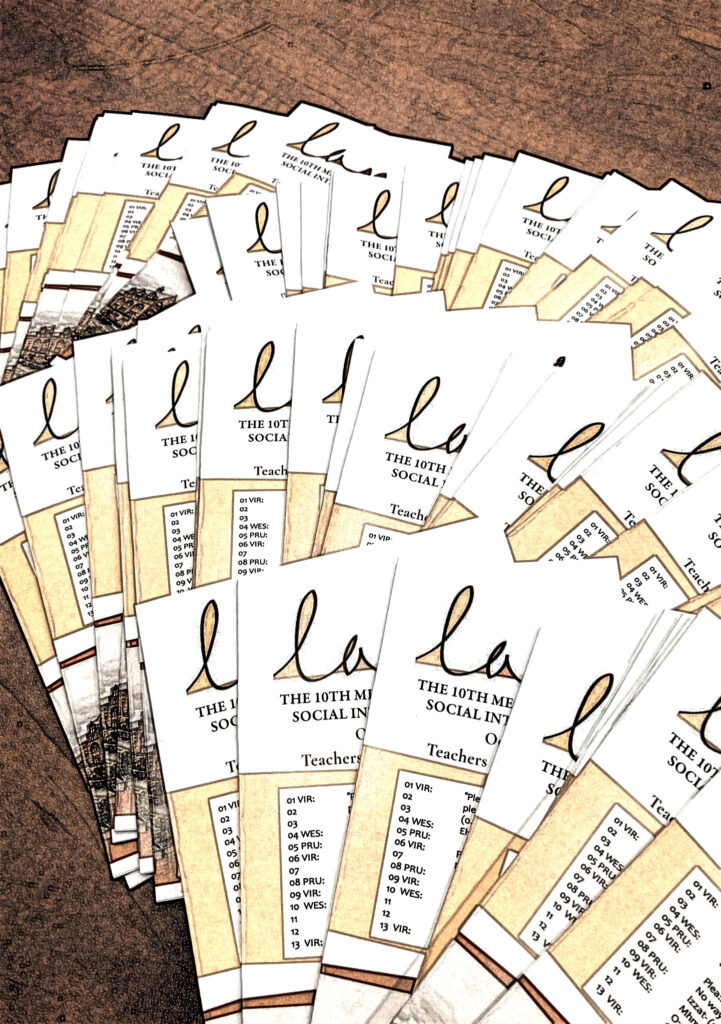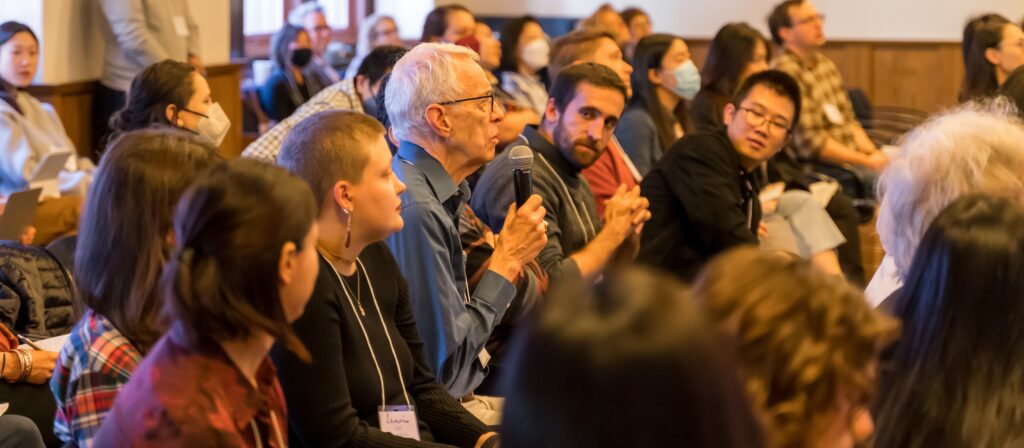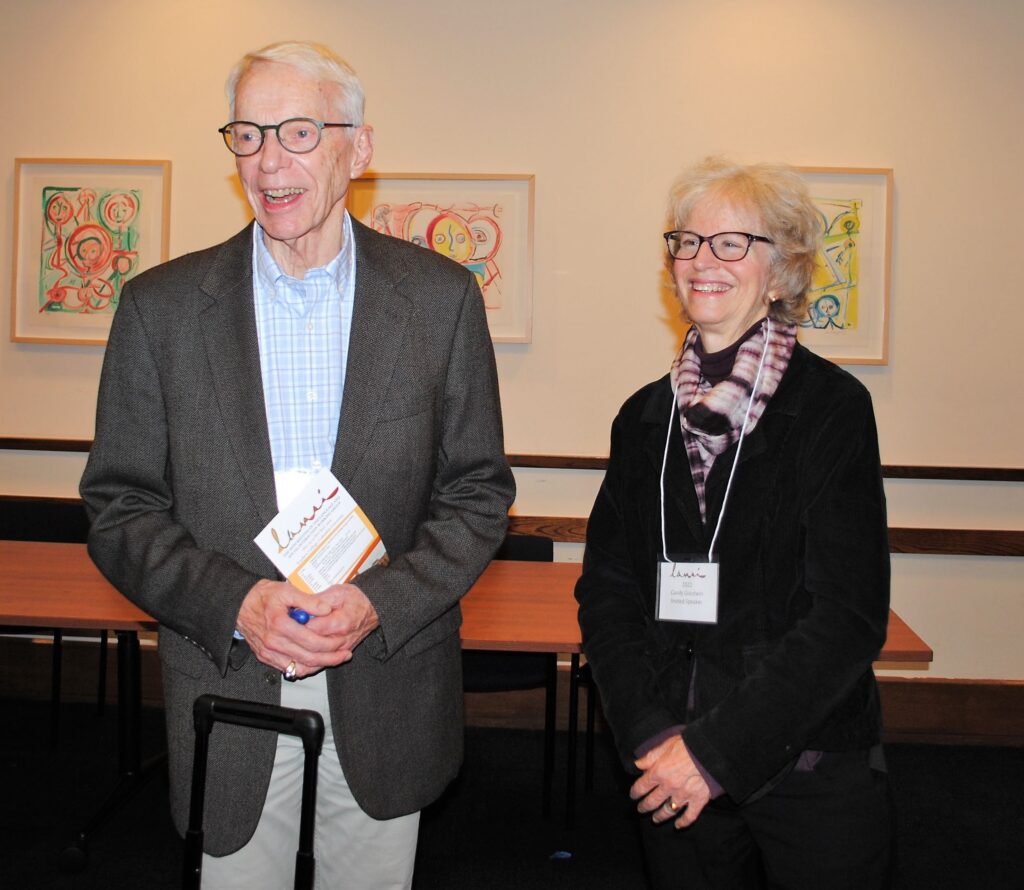
Sponsored by the Applied Linguistics and TESOL program and a number of other generous entities at Teachers College, Columbia University, the 10th annual meeting of The Language and Social Interaction Working Group (LANSI) was held on October 14 and 15, 2022, in New York City. The opportunity to finally hold the historically intimate meeting in-person after a two-year hiatus due to the pandemic was decidedly welcomed by all, especially as LANSI celebrated its milestone tenth conference since its inception.
BACKGROUND & MISSION
Initiated by Teachers College Professor of Applied Linguistics Hansun Zhang Waring in 2010, LANSI provides a space for individuals at all stages of experience to come together and engage with one another within the broad field of language and social interaction. The group holds monthly virtual data sessions that are open to the public, allowing for scholars anywhere to join and contribute to rich and fruitful discussion of naturally occurring data. In addition to these sessions, the annual meeting in particular brings together scholars from all over the world who are interested in all things human interaction. As the founder of LANSI, Prof. Waring was originally inspired by The Center for Language, Interaction, and Culture (CLIC) at UCLA and The Language, Interaction, and Social Organization (LISO) at UCSB, two west coast organizations that alternate sponsoring small conferences that foster in-depth and engaging academic conversations. Waring conceptualized the LANSI conference to be about as intimate as an academic event can be, with a one-room, maximum 100 participant set-up each year. Whether it be in the data sessions, at the conference, or through other sponsored academic events, one truly energizing aspect of LANSI gatherings is that budding scholars get the chance to engage in dialogue with and learn from more established scholars, thereby creating an experiential, mentorship environment wherein the most effective education can happen.

LANSI 2022
In keeping with LANSI’s underlying mission of promoting diversity and dialogue, each year the call for proposals for the annual meeting seeks submissions for papers from any area within the broad scope of language and social interaction research, including conversation analysis, interactional sociolinguistics, linguistic anthropology, and critical discourse analysis. This year, the selected papers, as well as the two invited plenaries, truly reflected this mission. Over two days, there were 26 paper presentations, two invited lectures, and countless spirited discussions during the Q&As, coffee breaks, lunches around Manhattan, and the Friday night reception. Altogether there was work examining interaction in Arabic, Urdu, Catalan, English, French, Spanish, Russian, Chinese, and more. Methods and analytical frameworks included, but were not limited to: conversation analysis, discourse analysis, ethnography, interactional linguistics, language socialization, member categorization, and multimodal interaction analysis. Contexts examined ranged widely from medical appointments to family meals to classrooms to political press conferences. During and after the event as well, several speakers and attendees participated in the signature initiative, Humans of LANSI, the inspiring results of which can still be viewed on Twitter by searching with #Humansoflansi.

The strength of scholarship and diversity of topics among the paper presentations notwithstanding, two of the main highlights of the conference were the invited lectures. On Friday, Doug Maynard -Professor emeritus and the Harold and Arlene Garfinkel Faculty Fellow emeritus from the Department of Sociology at the University of Wisconsin-Madison-, treated attendees to an inspired look into the relationship between ethnomethodology and conversation analysis (CA). Maynard’s lecture, drawn from a forthcoming collaboration with Professor Virginia Tess Gill, of Illinois State University, clearly delineated how, exactly, the main tenets of ethnomethodology are both fundamental to and a foundation for CA. His endeavor was not only systematic and succinct, but also a tricky topic that many scholars continue to grapple with.
Whereas Friday’s invited lecture was a brave sojourn into the complexity of EMCA, Saturday’s lecture reflected the courage to tackle an entirely different complex topic: the end of life. Dr. Candy Goodwin, Distinguished Research Professor of Anthropology at UCLA, examined the emails and video recordings of conversations about death as herself and her beloved husband, Dr. Charles (Chuck) Goodwin, prepared for his passing. This deeply emotional and moving presentation highlighted the impact of Chuck’s work on his students as a seminal researcher in the field. Furthermore, it took his legacy to a new level as he spoke poetically about and prepared for the end of life as a member of a culture in which topics of death are taboo or left unspoken. Conversations between Chuck and his doctor showed how, within doctor/patient medical interaction, space can be created to discuss and prepare for the ultimate human experience– departure from life.
These two contrasting lectures were met with a mix of emotion and an array of incredibly rich discourse about both the conceptual and technical drivers of our frameworks in studying language and social action, as well as the broader implications of human experience. When even seasoned scholars experience epiphanies about some ever-challenging concepts in their field, or when there is not a dry eye in the house after an academic talk, one knows they are in attendance of something special. Many attendees left with a heightened charge to engage in the work of uncovering the tacit ways in which we make sense of our world and share that with those around us.
To view the 2022 conference photos, please visit our Facebook page. To learn more about LANSI, visit www.tc.columbia.edu/lansi/. We hope to see all of the readers in NYC in 2023!!
